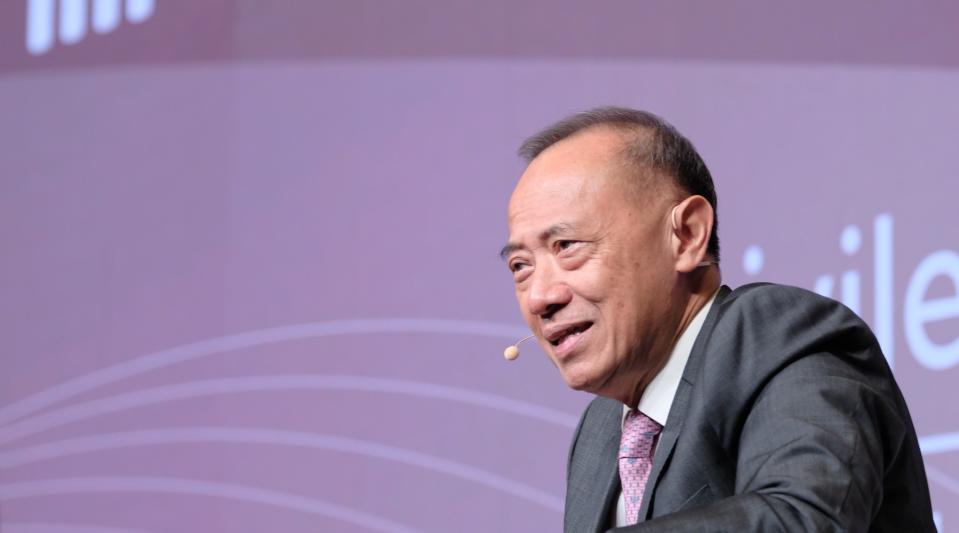Former foreign minister George Yeo says Prabowo presidency good for Singapore and Asean: UOB's inaugural wealth event

“Prabowo is his own man who won’t be dancing to Jokowi’s tune,” says Yeo, at UOB's flagship event for wealth clients.
A Prabowo Subianto presidency in Indonesia will likely result in a stronger focus on Asean, unlike the outgoing Jokowi presidency which mostly focused on domestic issues, says George Yeo, the former foreign minister of Singapore.
“Prabowo is his own man who won’t be dancing to Jokowi’s tune,” says Yeo, who was speaking at United Overseas Bank U11 (UOB)’s inaugural privilege conversations Asean event on Mar 6.
The event brought together industry heavyweights such as Yeo and Malaysian utilities tycoon Francis Yeoh, on two separate panels to discuss future developments in Asean, a region that UOB has claimed to have a stronghold over.
The bank also invited 500 wealth banking clients from five Asean countries it has a presence in, capitalising on the same week that American singer Taylor Swift is performing in Singapore, as many had flown in to catch one of her six shows.
The former diplomat spoke on a host of geopolitical issues, including the outcome of the recent Indonesian presidential election. Prabowo’s early declaration of victory after winning the preliminary vote count is a good election outcome for Singapore and the region, Yeo says.
He believes there will be continuity in Jokowi’s policies, given that Prabowo’s vice president is the current Indonesian president’s son Gibran Rakabuming. Meanwhile, the costly ambition of moving the capital from the existing Jakarta to Nusantara will still happen.
Elsewhere in Asean, Yeo alludes to “small storms” brewing in each nation — from the Myanmar coup in 2021, to the return of the exiled former Thai billionaire prime minister Thaksin Shinawatra, and the infighting among Malaysian politicians.
Although Asean has its own internal politics, they are relatively minor and solvable. Asean therefore remains in a “sweet spot” for the rest of the world to turn to as a neutral platform away from ongoing global tensions, he says.
Describing the state of the world today as being in a “great transition”, Yeo says that it is uncertain what turning history will take.
However, the rise of China, India and the middle east to become powerful players on a global stage is almost inevitable. The big drama is between the US and China, in which the Western world is filled with great uneasiness in witnessing China’s growth.
“They’re used to petting us on our heads and patronising us, and when Asian countries stand up to them, they don’t like it,” says Yeo. “And we can understand this emotion.”
Since leaving political office in 2011, Yeo has written about and spoken openly about China. This has garnered him a reputation of being pro-Beijing, a sentiment he has acknowledged.
True to his nature, the former diplomat dove into US-China tensions barely five minutes into his hour-long panel, and spent more than half of it discussing China’s position in relation to the West.
When questioned about China’s economic growth trends and its impact on Asean and Asia, Yeo admitted that the current “mood” around locals in the mainland is “low”. “People are sometimes losing hope in the future,” he says.
But to him, the Chinese government remains very steady. He cites the 5% gross domestic product (GDP) growth target set by Premier Li Keqiang at the National People’s Congress (NPC) annual meeting on Mar 5, which he is optimistic they will achieve.
In that, the Chinese Communist Party (CCP) set out a “laser focus” on economic issues, a move to quality, alternative energy and technology, and to achieve a certain level of self sufficiency as a hedge against geopolitical tensions.
Yeo notes that when China set out similar growth targets for 2023, the world had cast its doubt on its projection. But eventually, the nation landed at a 5.2% y-o-y GDP growth, beating its own estimates.
While the sentiment of negativity among the Chinese lingers, Yeo ascribes this to the burst in the real estate bubble in 2023, something he believes will be a boon to the country in a decade.
Even though it may take 10 years for the CCP to “massage the bubble out”, what this means is that when the next global financial crisis occurs, other nations that have yet to confront their economic woes will suffer, China may not, he adds.
“In the end, Asean will benefit from China’s rise,” Yeo says.
Finally, Yeo takes a humble position when asked to comment about the bubbling tension among Asean nations over Singapore’s woo-ing of Taylor Swift with economic incentives of a reported US$2 million to US$3 million for all six shows.
“People think Singapore is very clever to have made this move, but let's ask ourselves who has the [real] negotiating power, Singapore, or Taylor Swift?” he says. “Singapore may have approached [her concert managers] first, but they could have said no. We have been given too much credit."
See Also:
Click here to stay updated with the Latest Business & Investment News in Singapore
Analysts keep ‘buy’ and ‘neutral’ calls on UOB after FY2023 results
UOB's deputy chairman and CEO hopes to keep father’s stake in family
Get in-depth insights from our expert contributors, and dive into financial and economic trends

 Yahoo Finance
Yahoo Finance 